As the expansion of the Panama Canal continues to face delays, the hospitality industry is feeling the effects.
The Panama Canal was built in 1914, and since its original construction, the face of international trade and shipping has changed immensely.
The original locks allowed for the passage of vessels that could carry up to 5,000 containers. The current expansion underway will allow for much larger ships—known as Post-Panamax vessels—to travel through a new, wider lane that can accommodate the larger vessels. These Post-Panamax vessels have the capacity to carry up to 14,000 containers, which is more than double the current capacity.
The expansion of the canal began in September 2007 with an estimated cost of $5.2 billion. The original target completion date was for August 2014, but the project has suffered a series of delays and is still not completed almost two years later.

One of the largest challenges is a result of ongoing labor issues between the unions involved in the construction of the project and canal management. In late spring of 2015, the union went on strike with workers demanding an 11% increase in pay, which caused additional delays. The project also has seen a budget overrun of almost $2 billion. The overrun is in dispute between the contractor and the local government, and the delayed finish is estimated to cost Panama’s economy $1 million per day until completed.
The delay is having negative effects in the United States, primarily on Gulf and East Coast ports. These ports have spent millions of dollars on infrastructure in preparation for the arrival of larger vessels. Some examples of the impact include:
- Baltimore: The Maryland city has spent $250 million on four new 400-foot-tall cranes to accommodate faster unloading of bigger cargo vessels and dredging projects to accommodate a 50-foot berth for the massive ships.
- Miami: In South Beach, Miami has spent more than $110 million dredging the channel to 52 feet. In addition, the increased ship volume is estimated to add 33,000 jobs to Miami-Dade County and annual port revenue is expected to grow 26% to $34 billion, up from $27 billion once the project is completed.
- New York and New Jersey: New York and New Jersey have spent $3 billion combined by investing in rail infrastructure. This includes an 18-track expansion over 84 acres as well as the modification to raise Bayonne Bridge to 215 feet above the water to allow the Post-Panamax vessels under the bridge.
The U.S. receives 75% of all Asian imports through the port of Los Angeles and Long Beach, California. Once the expansion is complete, shippers will rethink their supply chain to make use of new routes and facilities. Overall, not only will costs go down if goods destined for the East Coast can arrive more quickly at an East Coast port, but the change also will help to limit risk of strikes on the West Coast. In late 2014, labor strikes on the West Coast crippled the retail and hospitality industries, while goods sat on boats in port for months waiting to be unloaded.
In the hospitality industry, commodities such as casegoods are primarily produced and shipped from Asia. In most cases, if a project is on the East Coast or Midwest location, the hotel owner can save significant money on shipping expenses if goods can arrive at an East Coast port. The upside is cost savings, but the downside is it takes two weeks longer to ship goods through the Panama Canal—generally time that is not in the schedule.
Once the expansion is complete, especially with the infrastructure improvements at East Coast ports in the U.S., goods will move faster and this will be an option that can be utilized without impact to the schedule. For a 500-room hotel, the savings this creates on just the freight portion can be in the six-digit range. In addition, not only are there savings in shipping costs, but CO2 emissions and the likelihood of damage to the product are reduced drastically.
So when will the expansion finally be complete? Industry experts now think the project will be finished in June 2016 dependent on no additional labor issues or other holdups. The Panama Canal is critical to world trade and the expansion is long overdue. In addition to the changes to the canal, China claims to have reached a $40-billion deal with Nicaragua to build another canal through that country to accommodate even larger ships, which will create competition in the region.
Darlene Henke, President and CEO, co-founded Audit Logistics in 2002. Ms. Henke and Audit Logistics are recognized leading experts in the hospitality sector, with over $850M of FF&E shipped and over 3,000 hotel projects completed since the company’s inception. Throughout her career, Ms. Henke has established a reputation based on integrity, hard work, and dedication to the hospitality industry. Audit Logistics provides third party transportation, warehousing, installation, and recycling services to the global hospitality industry, and has a unique, agent only, disclosed fee business model, pioneered by Ms. Henke. Today, the firm still provides the only fully auditable and 100% transparent logistics services available to the hospitality industry, and is currently the only logistics provider included in the Hospitality Purchasing Index offered by Mindclick. Corporately based near Boulder, Colorado, the firm has about 60 employees serving clients in over 22 countries.


